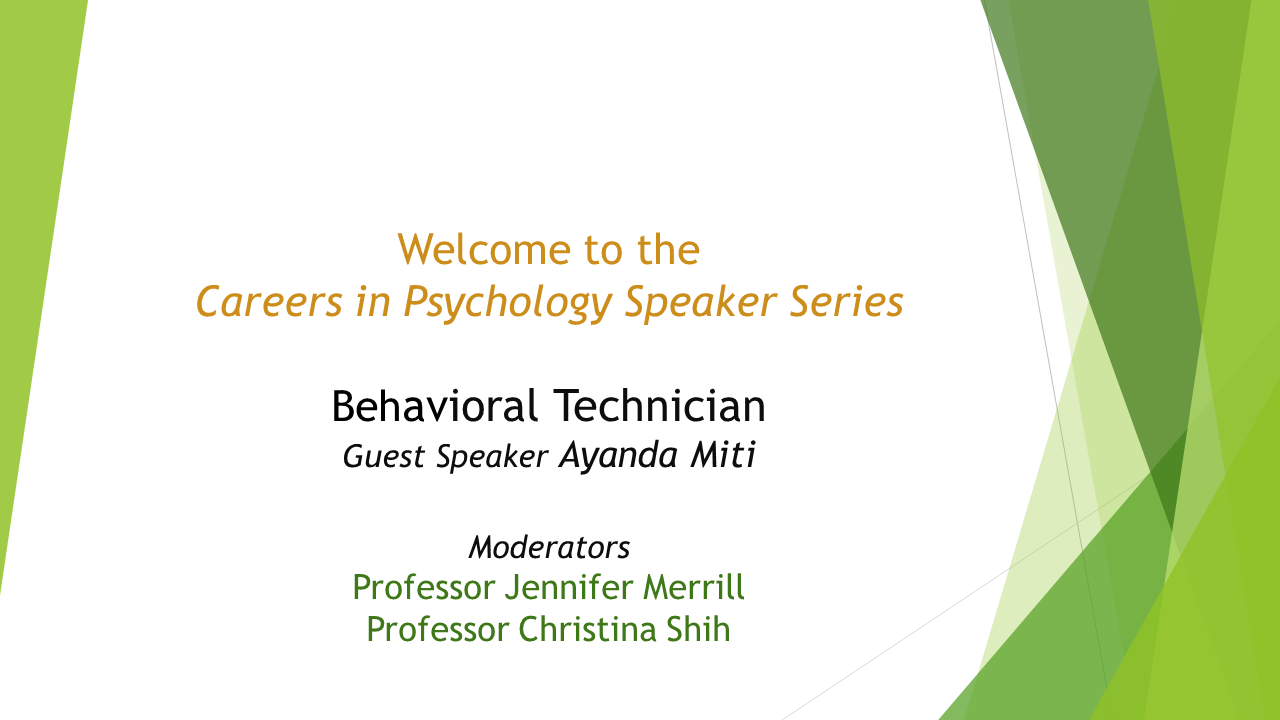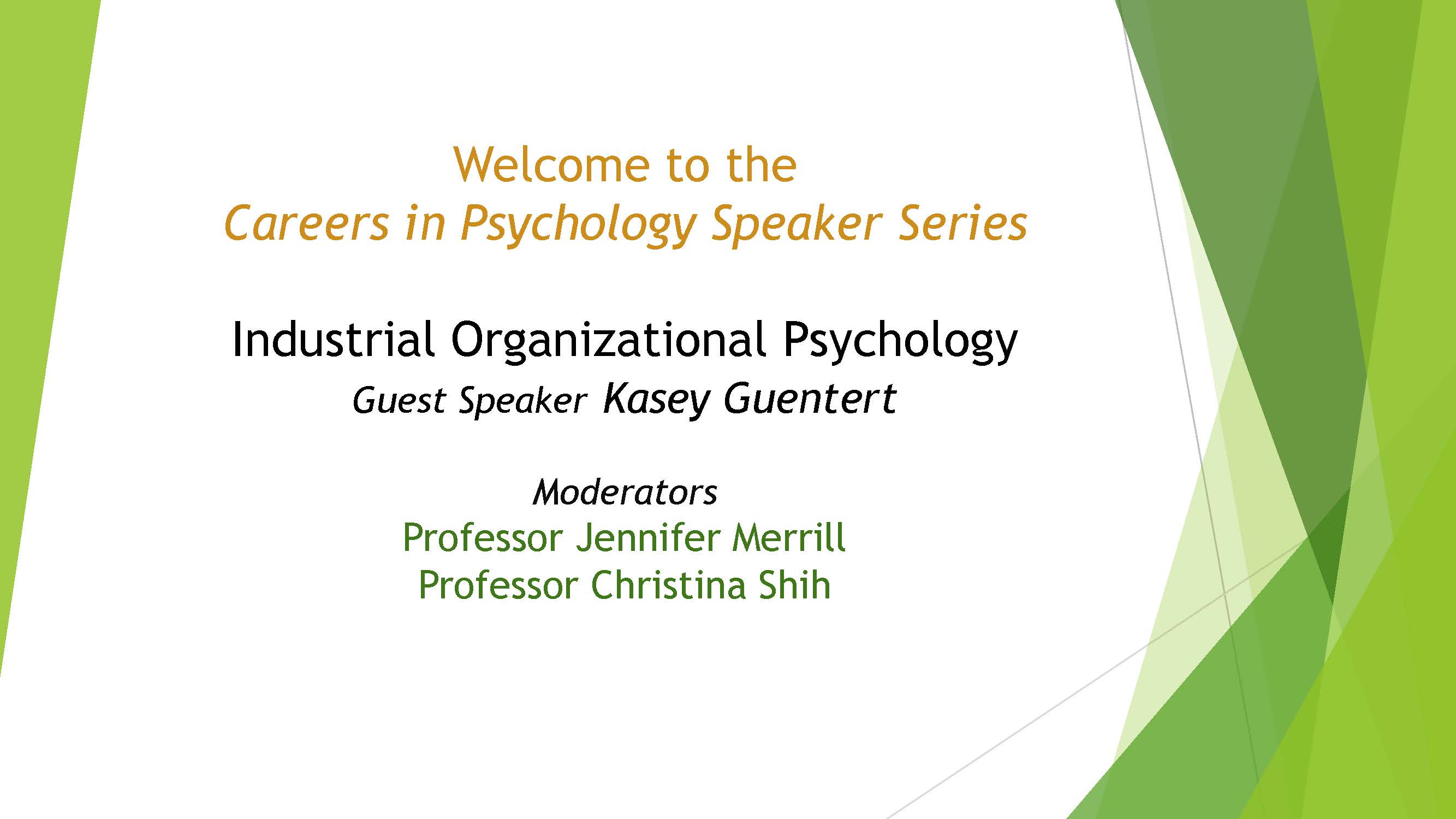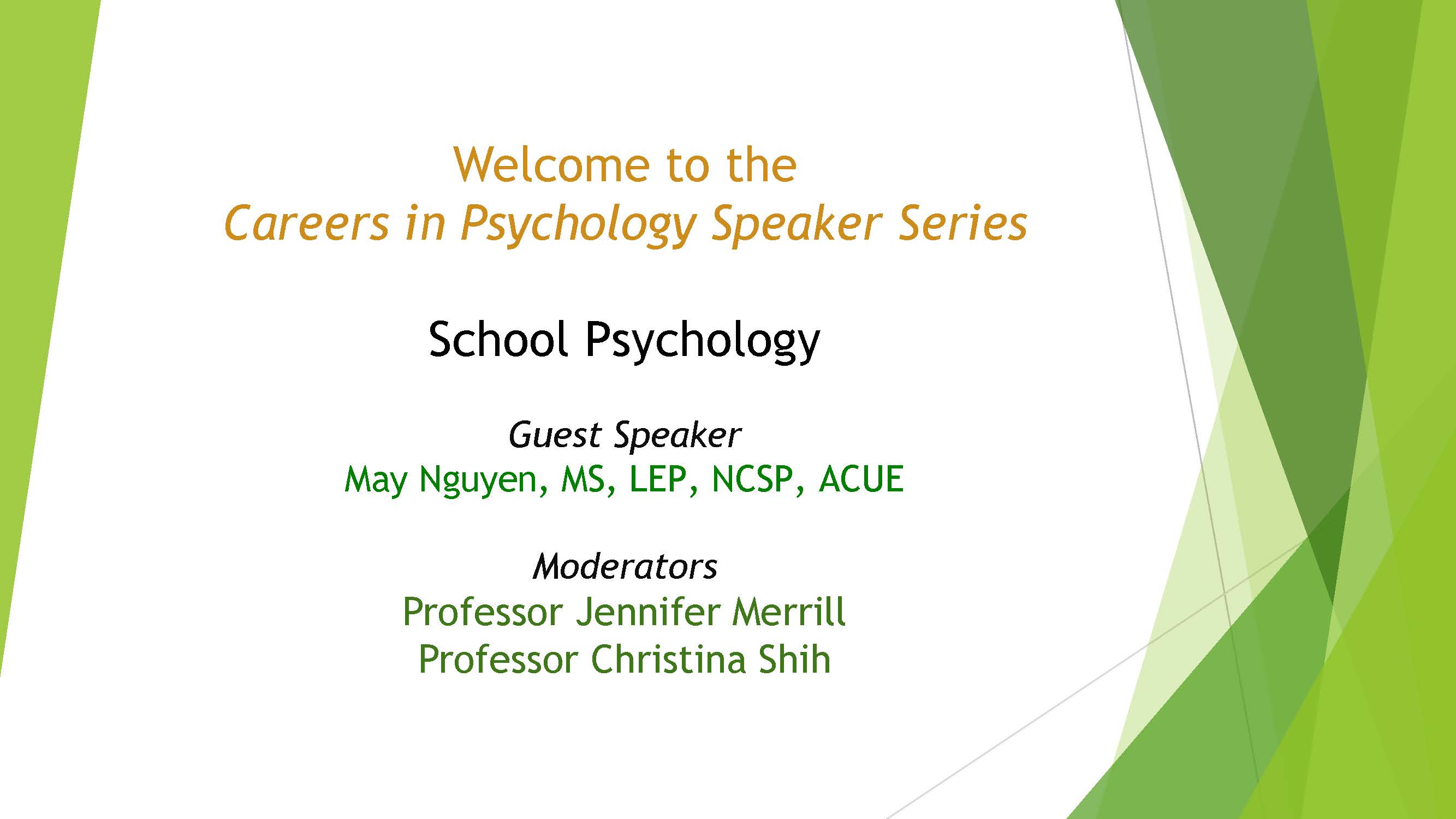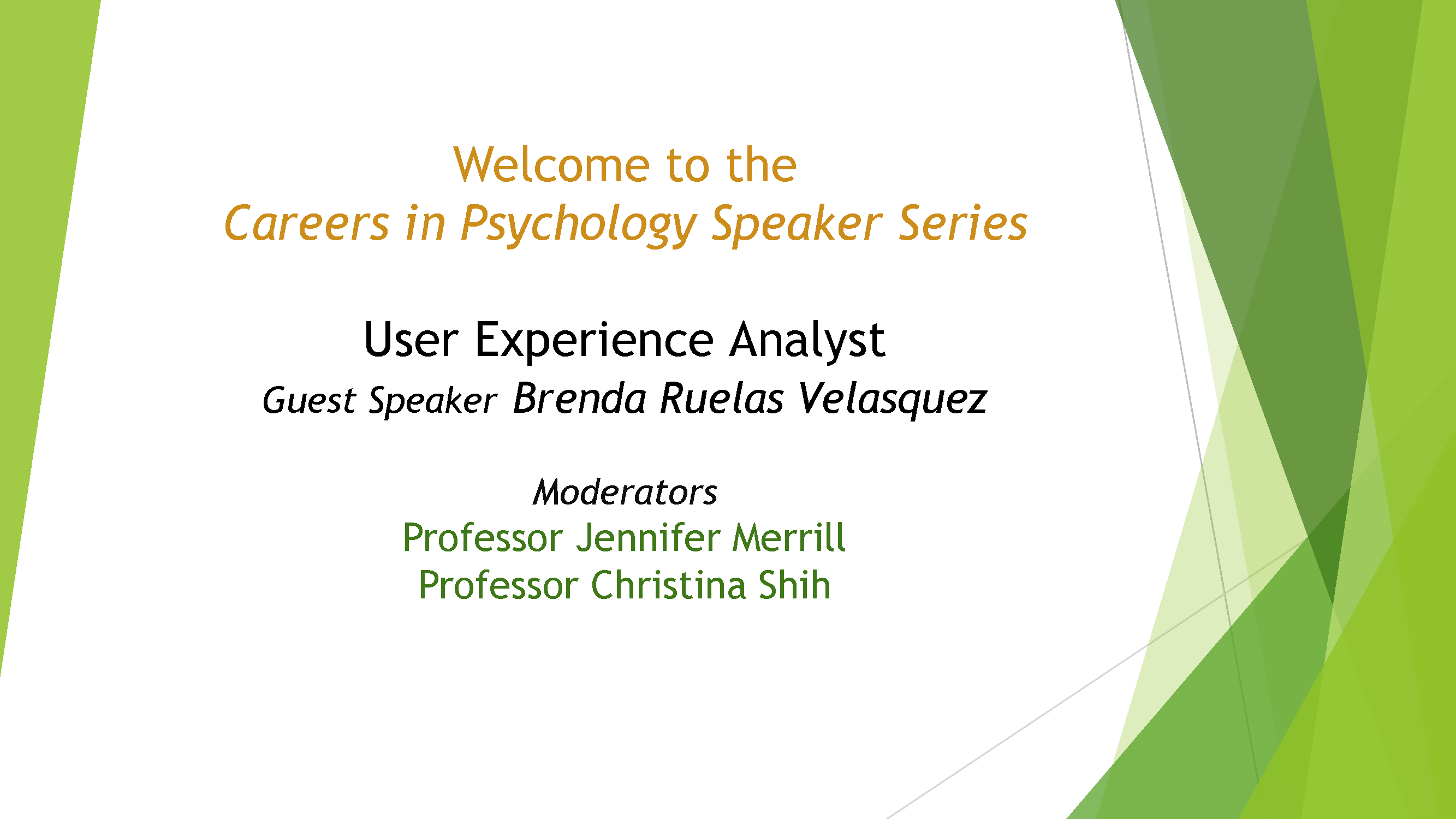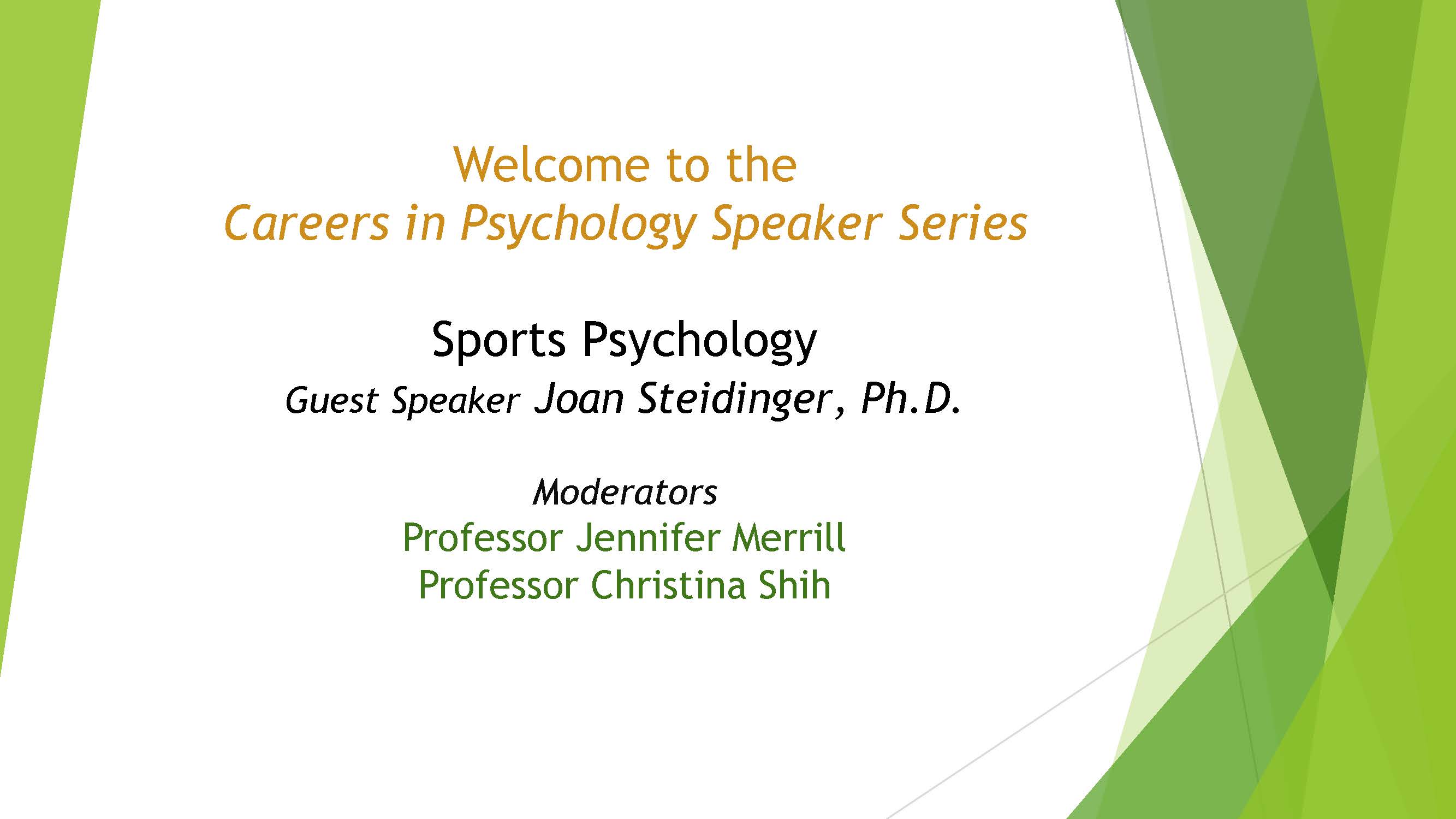Psychology
ApplyUnderstanding and Predicting Human Behavior
The Psychology Program at Skyline College engages students in an enriching and challenging academic experience that promotes an understanding of yourself and others, and factors corresponding to thoughts and behavior. Take courses toward a psychology degree, for general education, other majors' requirements, or personal enrichment!
Prepare for a career path in psychology
We've made it easy to plan your degree:
Term 1: PSYC 100 and PSYC 200 or 201
Term 2: PSYC 171 and PSYC 268 or 300
Term 3: PSYC 105 and PSYC 220
Term 4: PSYC elective
Check out current classes
According to the U.S. Bureau of Labor Statistics, employment for psychologists overall will grow by 19% between 2014 and 2024, much faster than the 7% average growth predicted for all occupations.
We offer a wide variety of classes that:
- Provide a foundation for professional success in many career options: according to the U.S. Bureau of Labor Statistics, employment for psychologists overall will grow by 19% between 2014 and 2024, much faster than the 7% average growth predicted for all occupations.
- Fulfill General Education requirements.
- Meet requirements for other majors and degrees.
- Offer flexible options. You can choose to transfer to a four-year degree program with the AA-T/AA degrees in Psychology.
- Help you in everyday life with communication skills, critical thinking, problem-solving, relationships, self-confidence, success and more. . .
Classes include:
- PSYC 100 General Psychology (3 units)
- PSYC 105 Experimental Psychology (3 units)
- PSYC 110 Courtship, Marriage and Family (3 units)
- and much more . . .
Other ways to get involved with psychology:
- Join clubs like Active Minds and SAGA
- Apply for the Psi Beta Honor Society
- Sign up for Professional Psychology Organizations like the APA
We welcome you to the exciting field of psychology!
Check out the Psychology classes offered in upcoming semesters.
| Program | Type | Total Units |
|---|---|---|
| Psychology | AA | 60 Units |
| Psychology for Transfer | AA-T | 60 Units |
Psi Beta is a national honor society for community college students attending two-year colleges, inviting students who plan to major or minor in psychology, as well as students who simply have an interest in psychology.
Our mission is to encourage professional development and psychological literacy of students by promoting and recognizing excellence in scholarship, leadership, research, and community service.
Learn more about Psi BetaUpon completion of the Psychology program students will be able to:
- Demonstrate familiarity with the major concepts, theoretical perspectives, empirical findings, and historical trends in psychology.
- Demonstrate the ability to think critically and creatively by employing skeptical inquiry and scientific reasoning.
- Understand and apply psychological principles to personal, political, spiritual, socioeconomic, social, and organizational issues.
- Understand and apply basic research methods in psychology, including research design, data analysis, and interpretation.
- Recognize and understand the complexity of sociocultural and international diversity.
Location: Building 1
Email: merrill@smccd.edu
Career Outlook - What is your future?
Psychology graduates work in business, education, environment, health, law, community
activism, social services and much more.
"People with bachelor’s degrees in psychology often possess good research and writing
skills, are good problem solvers, and have well-developed, higher level thinking abilities
when it comes to analyzing, synthesizing, and evaluating information. Many find jobs
in administrative support, public affairs, education, business, sales, service industries,
health, the biological sciences, and computer programming. They may also work as employment
counselors, correction counselor trainees, interviewers, personnel analysts, probation
officers, and writers."
- American Psychological Association
Most careers in Psychology require a four-year or graduate degree, and a degree in psychology can lead to a variety of careers which vary widely in terms of demand and salary expectations.
Careers in Psychology Speaker Series
The Careers in Psychology Speaker Series is designed with the intent of sharing information about different careers in the discipline. Psychology graduates work in business, education, environment, health, law, community activism, social services and much more.
During the 60-minute conversation, professionals share information specific to their career, including job duties, academic and training requirements, job outlook, and benefits and challenges related to the job.
What is your future?
Primary Contact

Faculty






Acting Dean & Division Assistant


